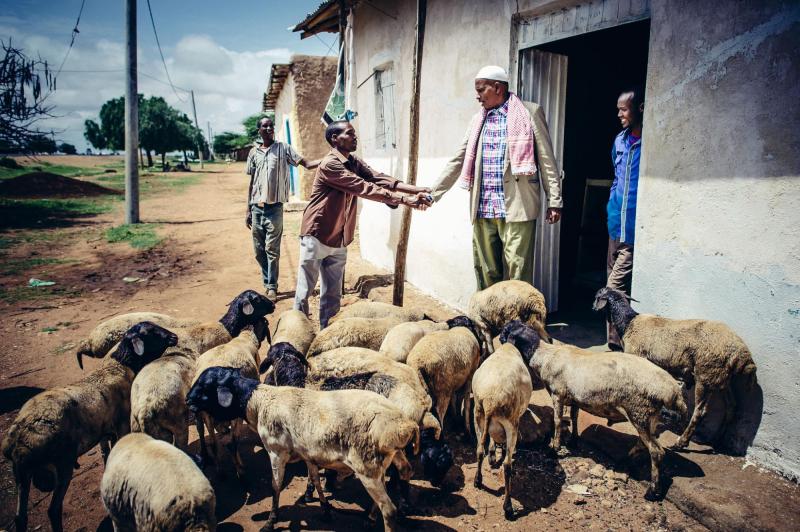Crowdsourcing data can help monitor drought impacts on food security
This policy brief shares experiences of using crowdsourced data to observe changes in food security attributable to drought in hard-to-reach and fragile areas of Ethiopia and Kenya.
Drought is the most significant climatic shock faced by pastoralists and agro-pastoralists in the drylands of sub-Saharan Africa. Early warning information can help households better prepare and respond to drought. However, providing precise early warning information and monitoring indicators of resilience in remote places affected by conflicts, with dispersed markets and poor infrastructure, is hampered by limited ability to gather data using conventional survey methods.
This policy brief shares researchers' experience of using crowdsourced data gathered with the platform KAZNET to observe changes in food security attributable to drought. Researchers further assessed the mechanisms by which drought impacts occur. Uncovering these mechanisms can guide policy-makers to develop strategies to enhance resilience and improve productivity in drought, thereby mitigating food insecurity. Such knowledge can help provide early warning and inform anticipatory action when dealing with shocks.
The key messages are:
- Many households experience food insecurity in pastoral areas, even after rainfall improves, as there is a time lag as pasture grows, animals recover, and food and income become available.
- Investments in fodder production and storage, market access and linkages, and rangeland management appear to be good options for mitigating the impacts of drought on food security.
- Crowdsourcing the collection of high-frequency data is a promising approach for addressing data gaps in drought monitoring, especially in remote pastoral environments. This could help provide early warnings of drought and inform anticipatory action.
- Including women data contributors is helpful for gathering information that male contributors might find challenging to collect.
